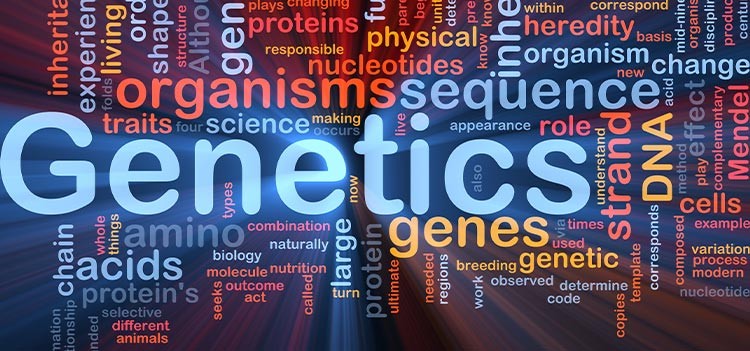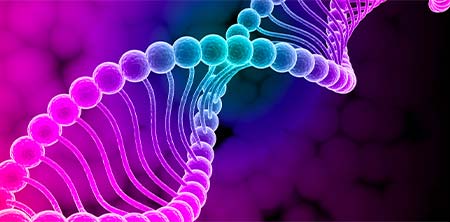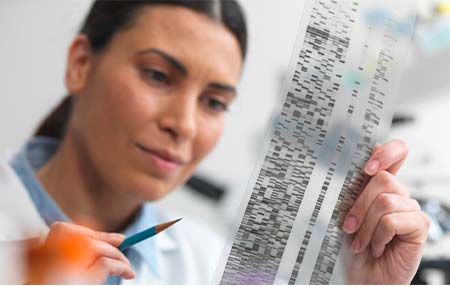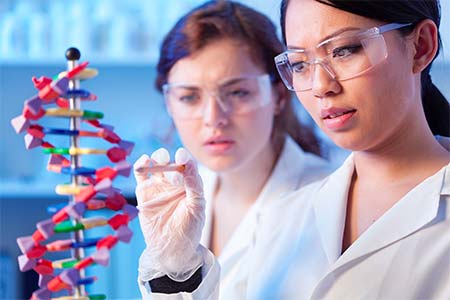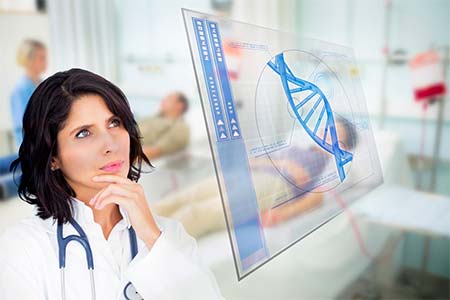Are you interested to explore about the careers available after B.Sc Genetics?
Are you worried about the job roles available after B.Sc Genetics?
Read this article to know more!
What is B.Sc Genetics?
Genetics is the study of science in which the students will be studying the gene composition and gene structure in the living organisms. The B.Sc Genetics students will be studying the inheritance of the characters from the ancestors by the offspring. They also study the gene structure and function in the living organisms.
The main aim of the B.Sc genetics course is to train the students to study the biological variations at the gene level. The B.Sc Genetics students are also trained to learn about the mechanism of the living organisms that allow them to transfer their characters to the next generations.
The field of genetics is interconnected to various fields such as Biotechnology, Molecular Biology, Microbiology, Zoology etc. The B.Sc genetics students will be learning about the molecular and cellular aspects, disease development, genetic analysis and chromosome theory as well as issues related to population and evolution.
The genetics degree can lead to a career in scientific research or industry, as well as it helps the students to develop the skills that can be used in a range of jobs and areas. The students who have completed their PUC or 10+2 with PCB or CBZ are eligible to join the B.Sc Genetics course.
Career Scope for B.Sc Students
The B.Sc Genetics students are hired in many areas like agriculture, pharmacy, environment, animal science etc.
Some of the roles available for B.Sc Genetics students are:
Clinical Research Associate
The clinical research associate runs clinical trials to test the drugs for their effectiveness, risks, benefits to ensure that they are safe to allow on the market. They will be working on new and existing drugs in the pharma companies. They are required to develop and write down the trial protocols and methodologies. They are also required to present the trial results to the steering committees. They are required to design data collection and analyse the obtained data. They are required to coordinate with the ethics committee that provides approvals for the trials. They are responsible to identify and assess the suitability of the facilities to conduct the clinical trials. They are also required to monitor the trials carefully and submit the detailed reports to the committees. They are also required to maintain the trail reports for further research if required. They are also required to discuss with the medical statistician about the results and provide them with accurate reports and data.
Clinical Scientist (Genomics)
The Clinical Scientists (Genomics) will be examining the patient sample to identify the genetic and genomic abnormalities that may cause inherited or acquired diseases. They work closely with healthcare professionals to provide advice to patients about diagnosis and treatments. They are responsible for predicting the probability of the abnormalities in the future generation. They use scientific, technical and clinical knowledge to analyse and interpret the results of routine and complex tests carried out by other members of the laboratory. They are required to write down fully interpretive reports for doctors and healthcare professionals and advise them on the investigation strategies. They are required to develop and devise new investigation strategies, taking into account the clinical problems of genetic diseases and clinical relevance of inherited or acquired genetic abnormalities. They are required to deal with quality assurance and quality control data.
Genetic Counsellors
The genetic counsellors help patients and their families understand and make informed decisions about the range of genetic conditions. They are required to interpret and explain genetic information to patients. They are required to advise the families about various aspects like medical facts, heredity factors, genetic conditions etc. They are required to create awareness about the genetic medicine available and how it can be used for treating genetic disorders in the patients. They are required to manage the patients with face-to-face interactions and counsel them about their genetic condition. They are required to interpret family and medical histories to calculate the risk condition, occurrence or recurrence. They are required to educate the patients about the factors like inheritance, testing, management, prevention, resources and research. They are also required to use counselling skills to promote informed choices and help the patients to adapt to the risk or condition. They help the patients to deal with their psychological and ethical issues raised by individuals and their families. They are required to order genetic tests and arrange medical and diagnostic testing as well as testing of relatives of the patients. They are responsible to refer the patients for appropriate screening relating to their conditions. They are also responsible to design and implement audits of clinical genetics. They are also required to undertake and present findings of research of colleagues.
Plant Breeder/Geneticist
The plant breeders/geneticist work on improving the quality and performance of existing agricultural and horticultural crops and create new varieties of plants. The plant breeder/geneticist will aim to develop useful traits in plants, such as disease resistance and drought tolerance. They will also work to improve characteristics such as appearance etc. They play a vital role in the agricultural industry as there are constant challenges to meet the market requirements and consumer demands. They are responsible to increase the yields by developing hybrid plants using gene technology. They are responsible to produce research aims and objectives and predict the cost of work. They are required to develop new and innovative research methods and techniques for improving plant breeding. They are also responsible to identify and select the plants exhibiting desirable traits, based on natural genetic variation. They are required to cross plants to produce new breeding immaterial for the field and glasshouse trials. They are required to analyse and scientifically assess plant breeding in the laboratory and note down the observations. They are required to develop virus-free plants and produce pest-resistant yields. They are required to liaise with the authorities and fellow scientists and share the research data with them and help them in their research activities.
Placement Opportunities
The B.Sc Genetics students are hired largely in research areas. They work as research assistants and help the senior scientists in their research activities. They are hired in different sectors like agriculture, food and technology, animal sciences, pharmaceutical companies etc.
Some of the top recruiters hiring B.Sc Genetics students are:
- Teva Pharmaceuticals
- Serum India Pvt Ltd
- Biocon
- Natural remedies
- Bharat Biotech
- Mylan Labs
- Wipro
- Himalaya Drug Company
- Glaxo Smith
- Kemwell Pharma
Conclusion
With the advancement of science and technology, there has been a demand for B.Sc genetics students. They are hired in most of the research companies at various levels. The increased demand by the consumers has forced the companies to innovate and come up with discoveries and innovations, especially in the life science sectors. The demand for the B.Sc Genetics students has increased in the last decade with more and more companies investing in research and development of the products when it comes to the welfare of mankind. The raising demand in the field of life sciences has created more scope and room for the budding skilled professionals especially when it comes to B.Sc Genetics students. The students who are passionate towards life sciences and genetics can choose to join B.Sc genetics and earn a handsome salary.

